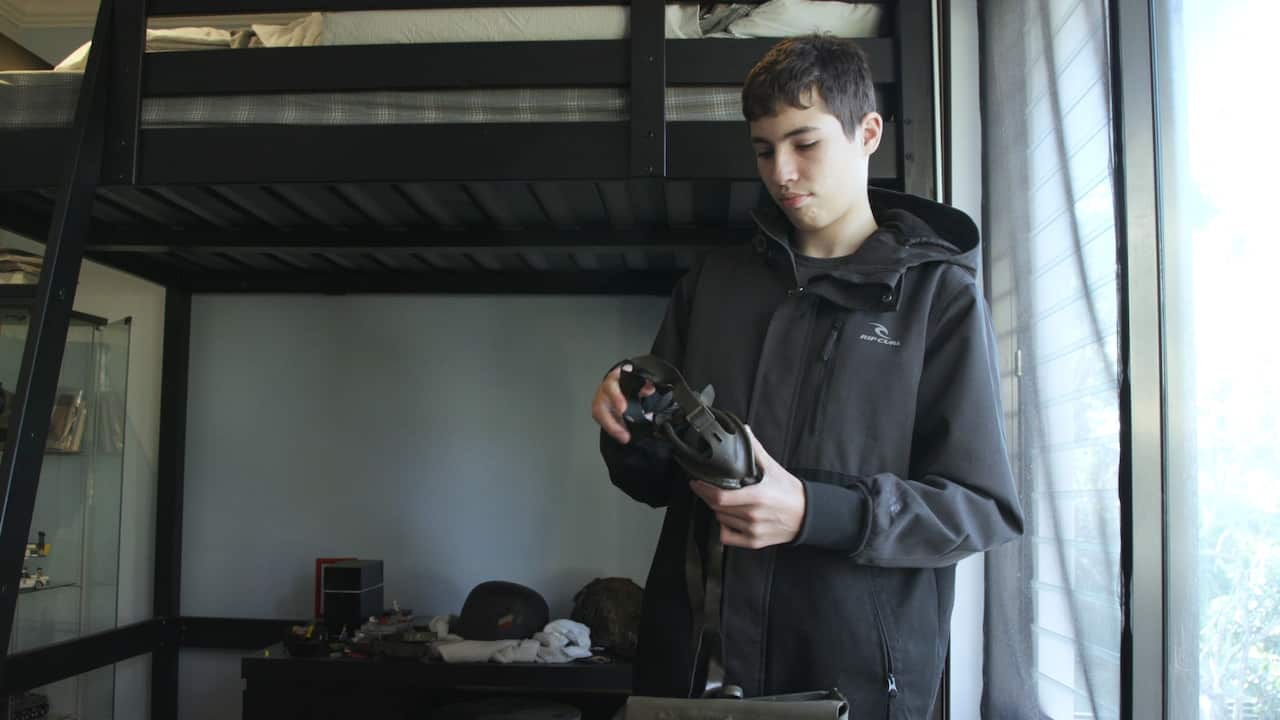I had hopes for my son Ben when he started kindergarten. He was happy and excited and ready to go. At the end of kindergarten, he hadn’t progressed as well as he should and by the first grade he was becoming upset about school and starting to call himself dumb. This was heartbreaking for any parent to watch. As a teacher, I tried to help him as best we could but by year four things were not improving.
At 11 years old, Ben was diagnosed with dyslexia. A year later, the psychologist told us he also had ADHD. Being diagnosed with dyslexia at such a late age makes it hard to catch up – he was already so far behind.
Despite the fact that he was clever and articulate and showed a remarkable ability for learning about things that he was keenly interested in, Ben just couldn’t learn the way other kids did. He struggled to maintain focus, and his limited attention span meant he couldn’t concentrate for long enough in the classroom to keep up, and his dyslexia got in the way.

As the psychologist put it, school was “mentally effortful” for Ben and he has difficulty sustaining attention on mentally effortful tasks, in other words school is exhausting.
Teenagers can be difficult to motivate at the best of times, but motivating a teenager with Ben’s attention issues makes it near impossible to complete school tasks, and sometimes tasks at home like cleaning his room! Homework often does not get done.
Ben’s also had an assessment on his working memory and the report said Ben has “impaired attention reflected in impaired working memory”. I knew then that to help him, I had to break things down step-by-step and write instructions on Post-It Notes so he can focus on one step at a time.
Now, Ben’s 17 and we are at a crossroads as he approaches the end of his school years.
We made use of technology. It can act as a motivator, with additional game play time being earned for completion of tasks. His phone and laptop have reminders, as well as speech-to-text and text-to-speech technology that has proven very helpful. He also makes use of a C-pen to read tricky words in books and texts when he can’t use a computer.
But schools are not catering for Ben and others like him. There’s still a lack of understanding with dyslexia and ADHD. Schools still do not have the knowledge and resources to screen for dyslexia in the early years of school. Early detection is critical for keeping up and for protecting their self-esteem.
Being a teacher I understand the lack of training when it comes to the teaching of reading in Australia and the lack of dyslexia awareness. I had to go and seek this knowledge outside of my own degree in order to assist him at home. Teachers are overburdened and overworked with overstuffed curriculums and administrative duties, so I don’t blame them at all.

Now, Ben’s 17 and we are at a crossroads as he approaches the end of his school years. Does he get a full time paying job, or does he stay on and complete his HSC? If he decides to enter the workforce how will his attention and concentration levels impact on his ability to plan and organise himself every day and what will that look like in the workplace?
Relationships and basic interaction is also difficult for Ben. Working memory and short attention span are vital for basic conversation and many people don’t realise that attention and working memory problems also affect emotion regulation, which can lead to misunderstandings and outbursts.
I know that Ben is a wonderful boy who can learn anything he wants to, when delivered in a way that suits his learning profile. When he sets his mind to learning something he becomes an expert at it. He has taught himself a phenomenal amount of information on WW1 and WW2 memorabilia.

Perhaps a job at the War Memorial would cater to his needs and provide a fulfilling career. He would be an invaluable addition to a work place if he just had the chance. We have high hopes for Ben and hope that all kids with attention issues are given the opportunity they need to not only function, but to excel and exceed expectations.
There is still a stigma attached to ADHD and dyslexia, and in a world that is so heavily reliant on attention that is moving faster than ever, perhaps we need more people who are able to switch and think outside the square, like Ben.
Insight is Australia's leading forum for debate and powerful first-person stories offering a unique perspective on the way we live. Read more about Insight
Have a story or comment? Contact Us


